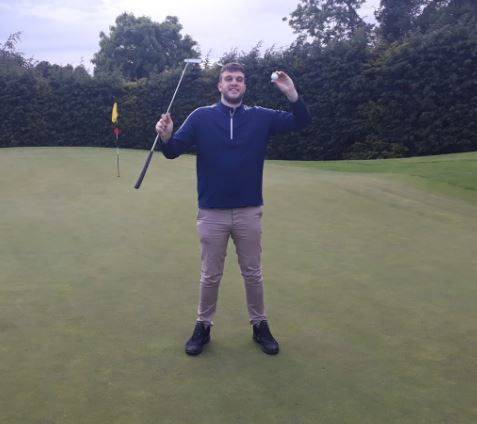Game Improvement Irons Vs Forged – What’s Better And For Who?
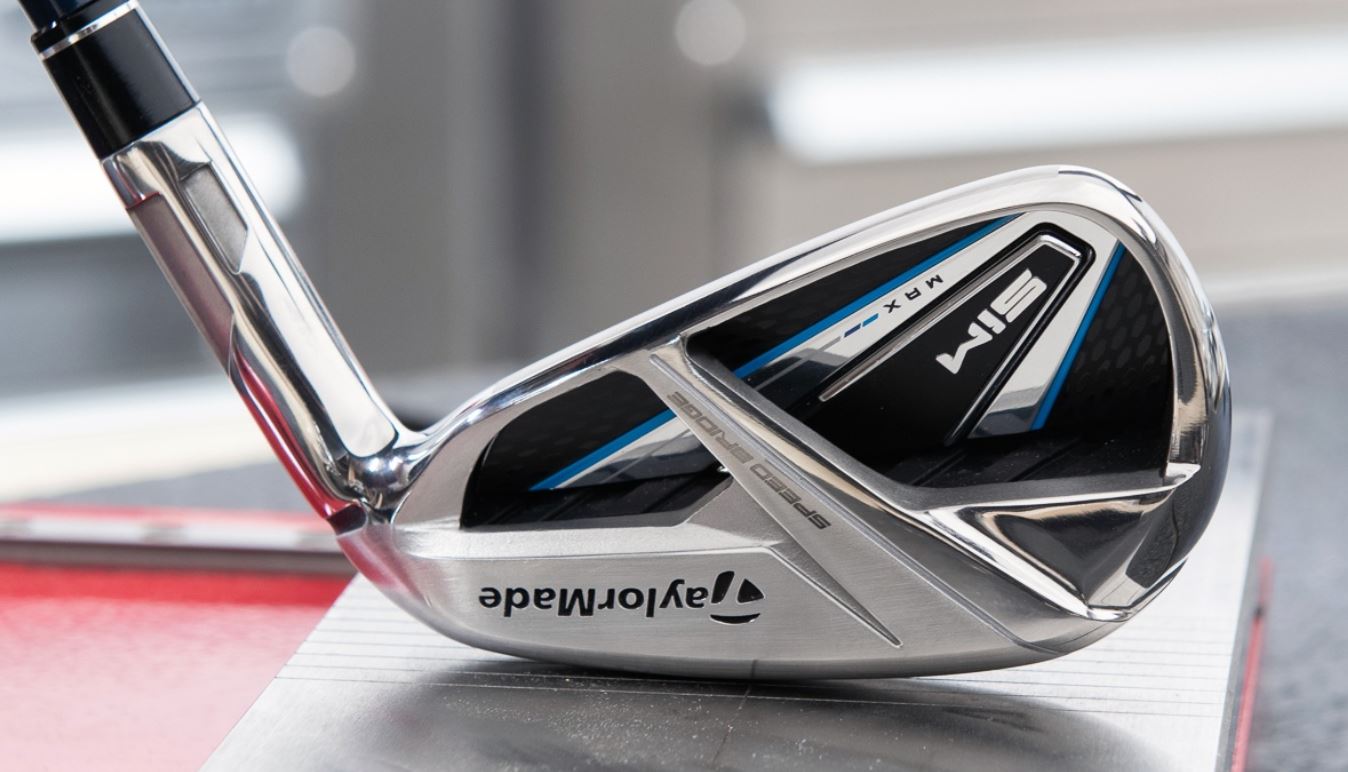
When you look at a set of irons, what is it that you most desire? The forgiveness and consistency of game improvement, cavity back irons? Or the slick compact appearance of forged irons?
In this post, we shine the spotlight on game improvement irons vs forged to determine what is better, and for who? We will outline the features and benefits to help you decide which iron design best suits your game?
Game Improvement Vs Forged Irons Overview
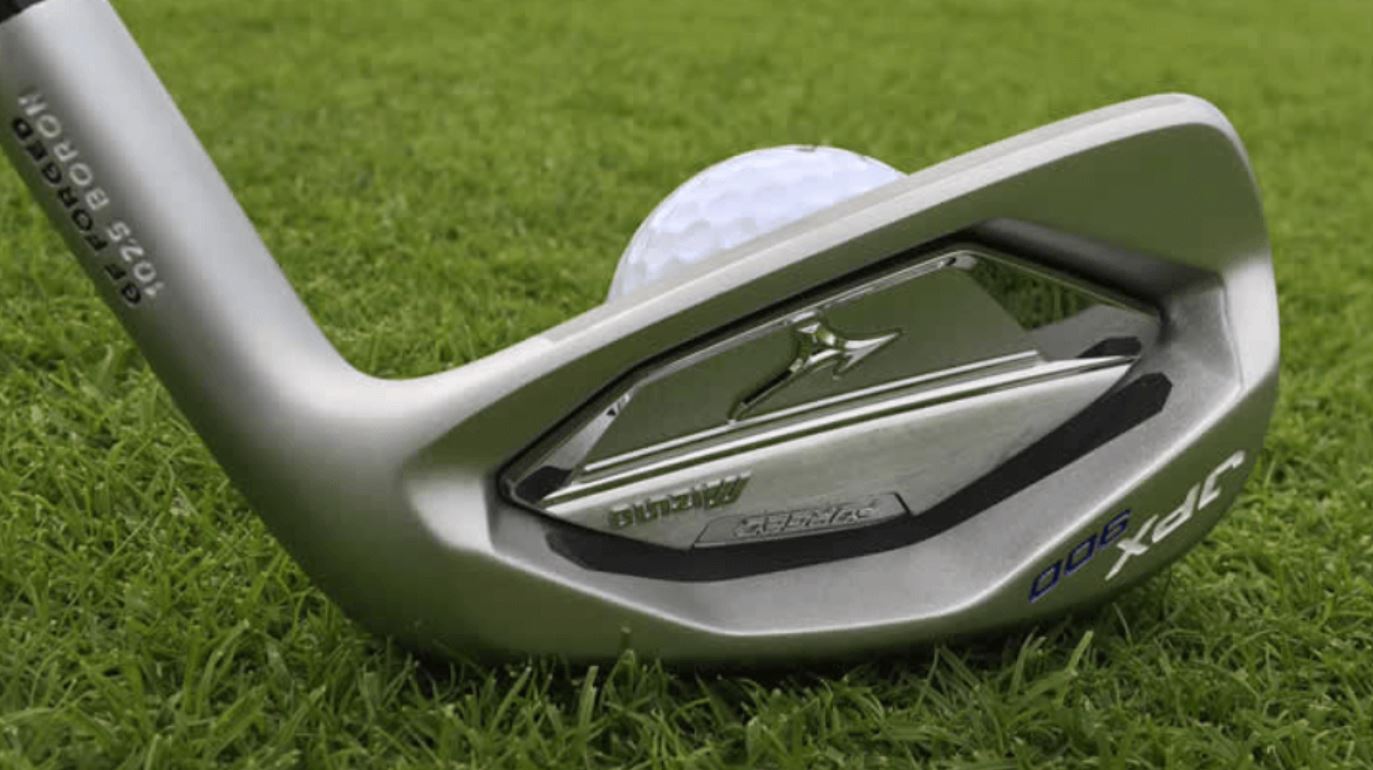
Game improvement irons often contain a cavity back design that is packed with technology and perimeter weighting to help the average achieve consistency in their game.
Game Improvement irons will also possess thicker soles and larger sweet spots that help with enhanced distance and accuracy.
Cavity backs are created using mold casting, which is more affordable and enables manufacturers to produce the design at scale. Conversely, according to Golfweek’s M.L. Rose, forged irons are crafted from a single piece of steel.
What Are Game Improvement Irons?
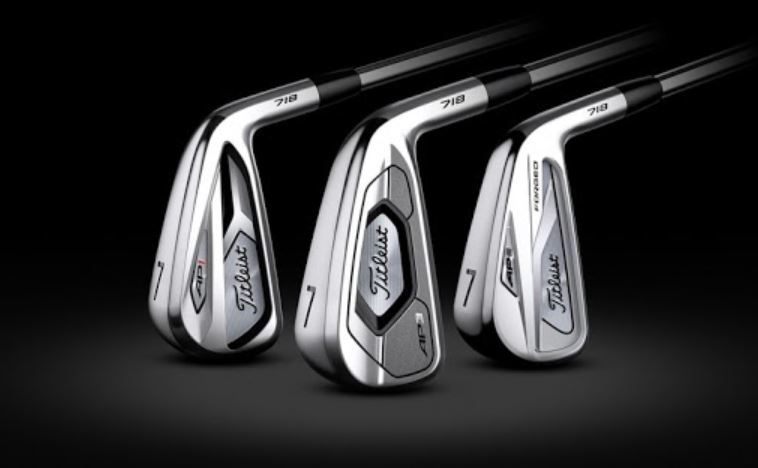
Game improvement irons are synonymous with a cavity back design where the weight is distributed evenly around the perimeter of the face to deliver forgiveness and consistent distances.
Often, irons in this category contain various weighting and technologies that assist you in generating accelerated clubhead and ball speeds, a powerful launch, and straighter ball flight.
Finally, game-improvement irons feature a more chunky, oversized head compared to forged irons, which is off-putting for superior golfers but delivers distance and forgiveness.
What Are Forged Irons?
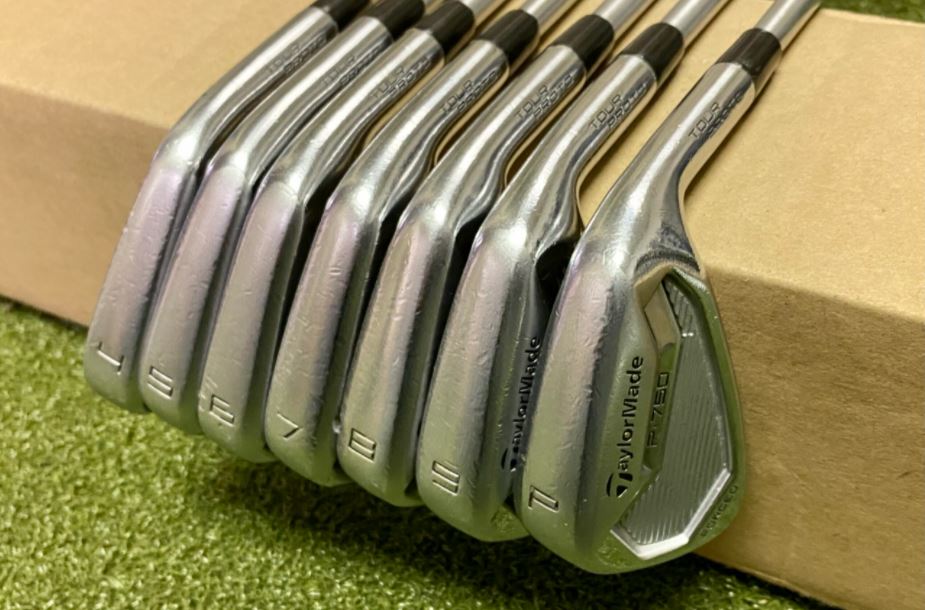
Forged irons are crafted from a single piece of metal. Golfweek’s Don Patton explains that this is how all irons were made up until the 1960s.
In today’s market, forged irons are mostly associated with players’ irons and blades.
Game Improvement Vs Forged Irons
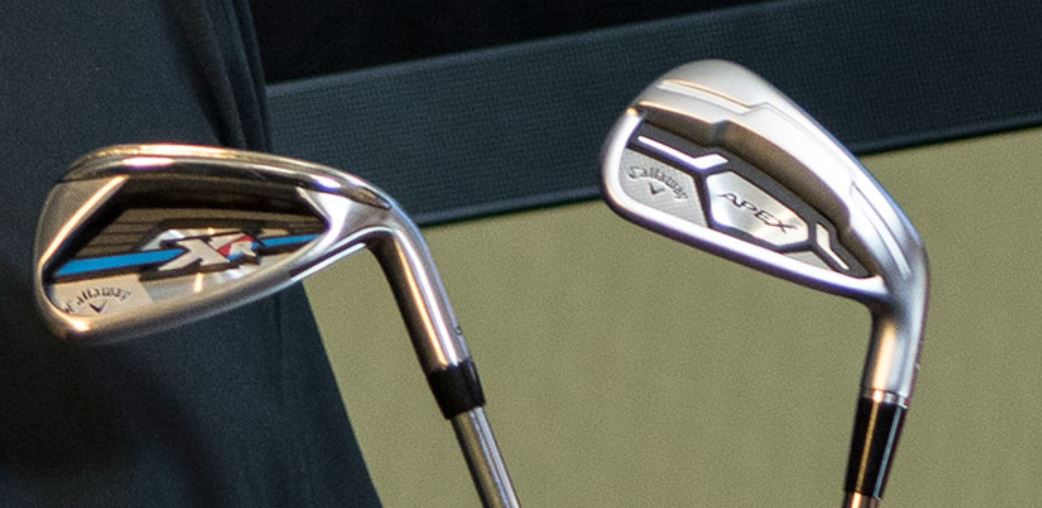
Who Should Be Using Game Improvement Irons And Why?
As a rule of thumb, mid to high handicappers and those who desire additional clubhead speed should use game improvement irons.
The reasons are in the iron’s ability to deliver accelerated clubhead speeds, optimal forgiveness, a straighter ball flight, and consistent distance.
Who Should Be Using Forged Irons And Why?
Considering that blades or players’ distance irons are commonly crafted using the forged method, these irons are best suited to low handicappers and professionals.
The heads of forged irons are often compact, the sweet spot sits directly behind the center of the face, and they are the least forgiving of the irons. As a result, only superior ball strikers should consider forged irons.
Pros And Cons Of Game Improvement Irons
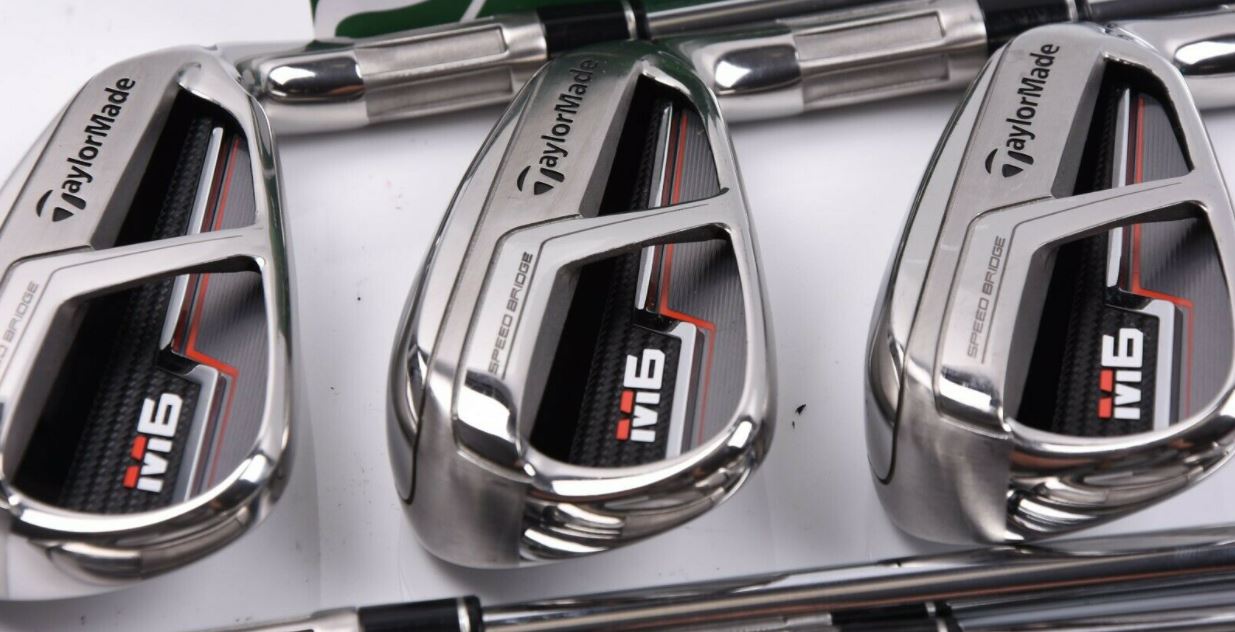
Pros
- They assist you in generating additional clubhead speed
- Perimeter weighting across the face provides increased forgiveness
- The lower CG offers a consistently powerful launch for added carry and distance
- The offset design of the irons promotes a straighter ball flight to keep you in play
- An enhanced sweet spot encourages more distance even on off-center strikes.
Cons
- Lower side spin and a straighter ball flight reduce a player’s ability to shape their shots.
- Game improvement iron heads are chunkier than forged irons which many lower handicappers and Pro’s may disapprove of.
- These irons do not have great turf interaction abilities. Creating a challenge to cleanly strike a ball from thicker rough.
Pros And Cons Of Forged Irons
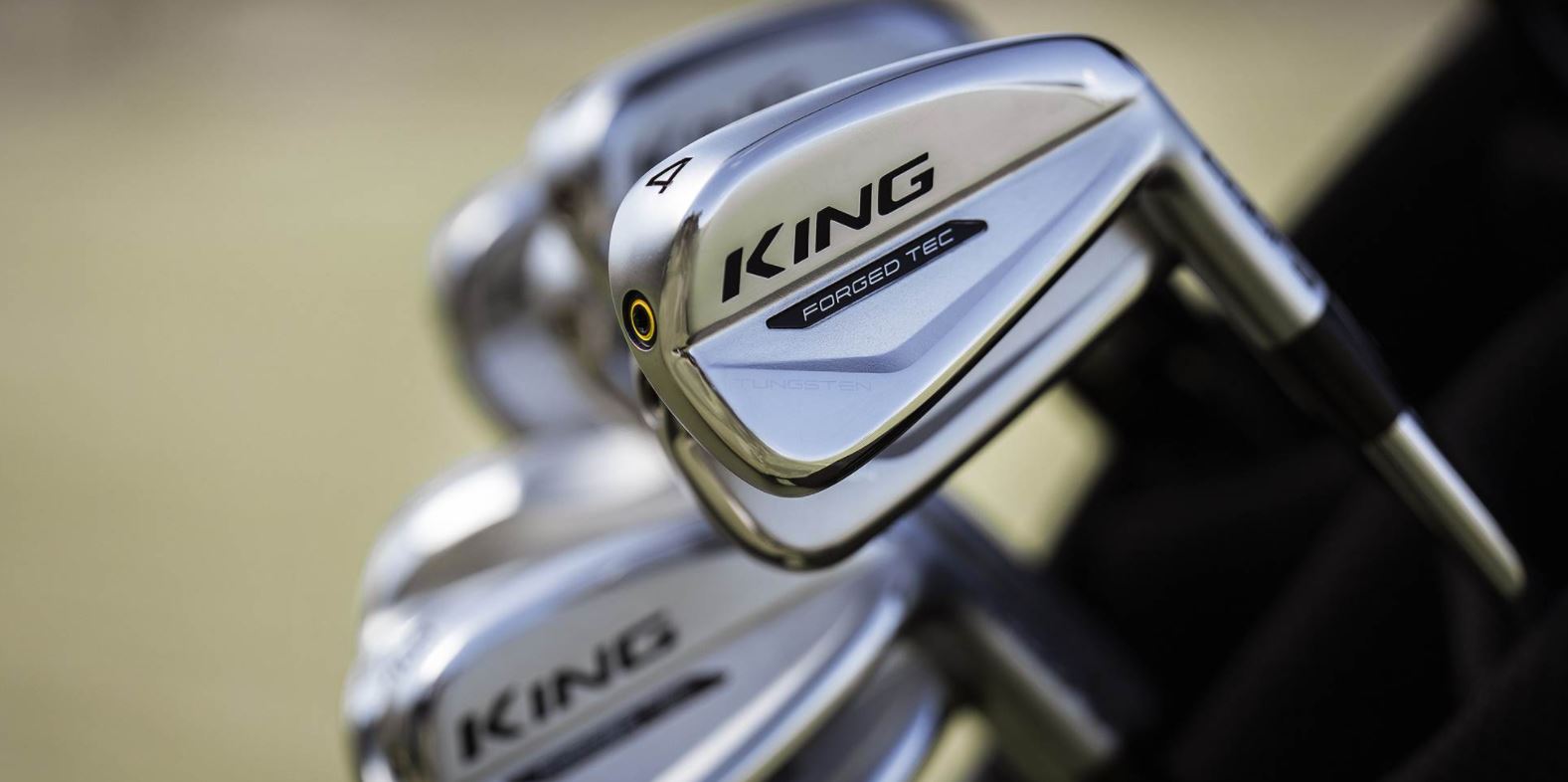
Pros
- Crisp acoustic feedback on strikes out of the sweet spot
- Buttery soft feel on well-struck shots
- Optimal shot shaping ability to attack pins
- Excellent turf interaction
- Slick appearance
Cons
- Small sweet spot
- Unforgiving
- Unwanted vibrations ring through the club on mishits
- More expensive than game improvement irons
- Not suitable if you struggle with clean ball striking
Can High Handicappers Use Forged Irons?
I always like to say that you can do anything. However, always question whether you should be doing something. So, high handicappers are welcome to use forged irons, but I highly discourage it.
The reason is to do with your sanity. Golf is meant to be enjoyable, but if you are a high handicapper or weekend golfer, blades will drive you mad. You will receive no forgiveness and find yourself losing distance and accuracy on mishits.
If you are a high handicapper, stick to the game improvement irons.
How To Know When To Switch From Game Improvement Irons To Forged?
When you can consistently strike your game improvement irons in the center, and you feel that you have channeled your inner Will Zalatoris. Then you can think about forged irons.
Will Forged Irons Make You Play Better?
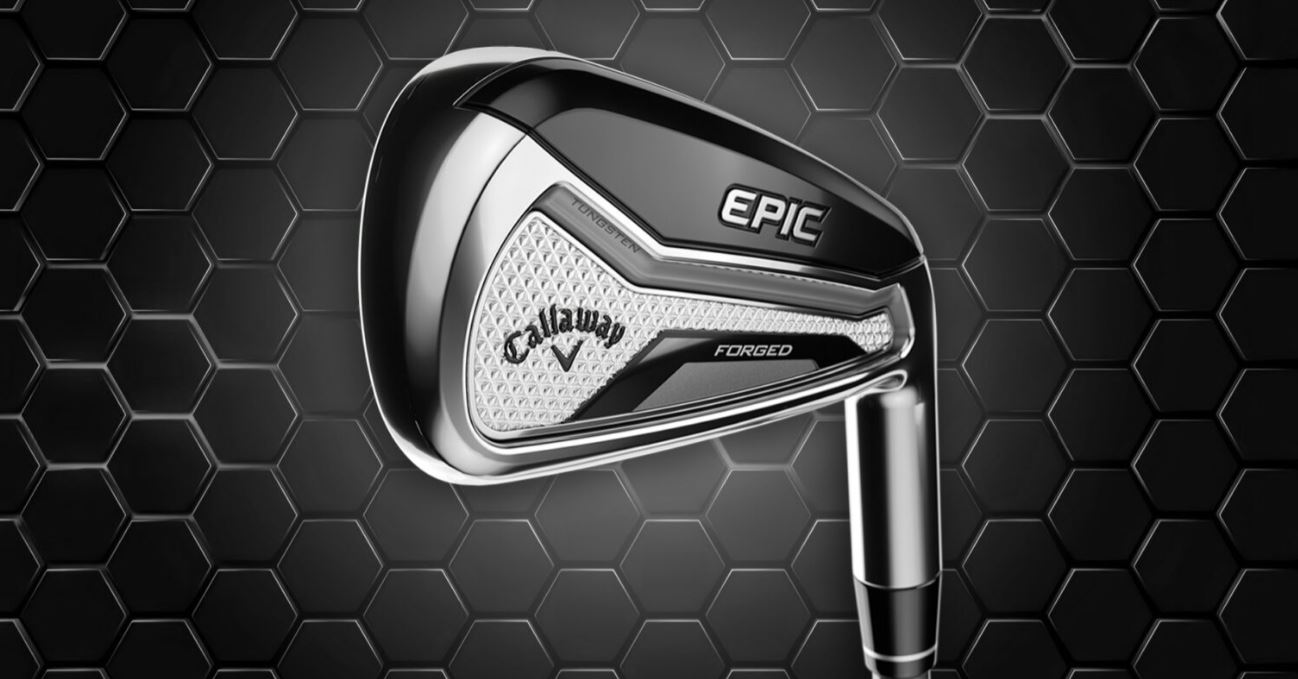
Forged irons will in no way make you play better. If you are struggling with game improvement irons, do not switch them out for forged irons.
They will not solve your golfing struggles. Instead, get fitted for irons and see what best suits your game.
In all likelihood, a couple of lessons with your local Pro will identify what you need to do to improve your game. You may not even need to buy any new clubs at all.
Can Low Handicappers Use Game Improvement Irons?
Low handicappers can absolutely use game improvement irons. In fact, it is becoming more popular to see Pros on the Tour pulling out game improvement irons. Even the best golfers can use a bit of forgiveness from time to time.
Kevin Na attested to this when he said that he played with blades for a year in his early 20s when he was dumb. But, now that he is wiser, he plays with cavity backs.
How To Know When To Switch From Forged To Game Improvement Irons?
If you struggle with accuracy and consistent distance when striking forged irons. I recommend considering game improvement irons.
If your ball striking is questionable, it is time to take advantage of the accelerated clubhead speeds, consistent distance, and forgiveness of game improvement irons.
Do Game Improvement Irons Hit The Ball Further?
There is no definitive answer to the question of whether game improvement irons hit the ball further, as it depends on the player.
Us average golfers will find that we hit game improvement irons further than blades. The reason for this has to do with the forgiveness of the irons on off-center strikes.
Most of us will endure multiple mishits during a round. With blades, the consequences are dire, and your distance is reduced. Game improvement irons, on the other hand, are forgiving and deliver consistent distance.
Do Any Pros Use Game Improvement Irons?
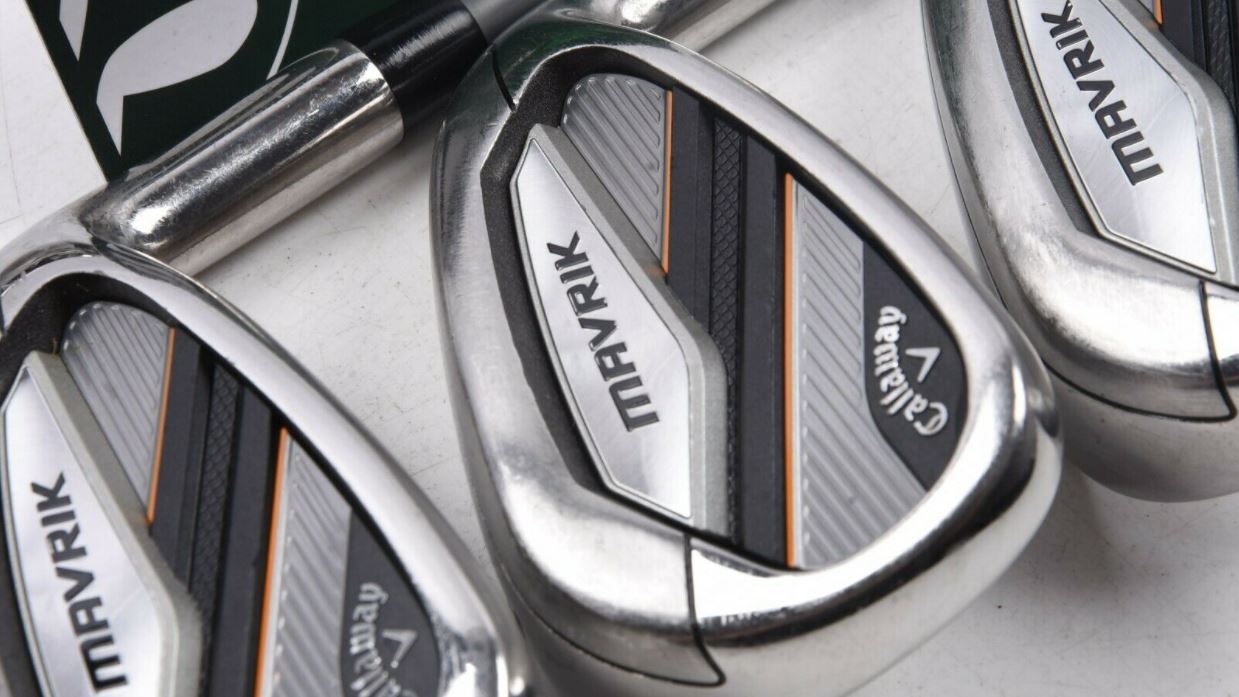
Over the past decade, game improvement irons have begun to feature more prominently in the bags of Pros. As mentioned earlier, Kevin Na is a fan of the forgiving irons.
Furthermore, Golf.com’s Jonathan Wall noted that more than ever before Pros are adding game improvement irons to their bags.
Game improvement long irons are especially prevalent. Providing the lower CG that promotes a higher and powerful launch and optimal forgiveness.
Are Their More Forgiving Forged Irons For High Handicappers?
There are forgiving forged irons on the markets that cater to all golfers. But, most of these fall into the Players distance irons category.
However, while they are forgiving clubs, they are often designed to produce a mid to low launch, which could impact your ability to get the ball consistently airborne.
One forgiving forged iron that is worth testing is the TaylorMade P790 sets.
Should Mid Handicappers Use Forged Or Game Improvement Irons?
If you are confident enough to sacrifice a little forgiveness for distance.
You should consider testing a set of players’ distance irons. I would not recommend giving blades a go at this point.
However, game improvement irons are still the preferred option at this point of your golfing journey.
What Type Of Irons Are Most Pros Using?

Comparing Game Improvement Irons Vs Forged On Distance
As I mentioned earlier, the average golfer will gain more distance with game improvement irons over forged irons.
The reason for this is that game improvement irons are more forgiving and deliver consistent distance. Even on mishits.
Feel And Control
When it comes to feel and control, forged irons are in a different league to game improvement irons.
A strike out the middle provides you with a soft feel, crisp acoustics, and the ability to control your shot shape.
Spin Rates?
You will find that forged irons provide higher spin rates than game improvement irons.
This is because the latter is designed to lower spin rates and promote straighter shots.
On Price
Generally speaking, forged irons fetch a higher price than game improvement irons.
The simple reason for this is that the forging process takes longer and is more complex versus the molding method used to create cavity back irons.
Our Favorite Game Improvement Irons – Top 3
Titleist T300
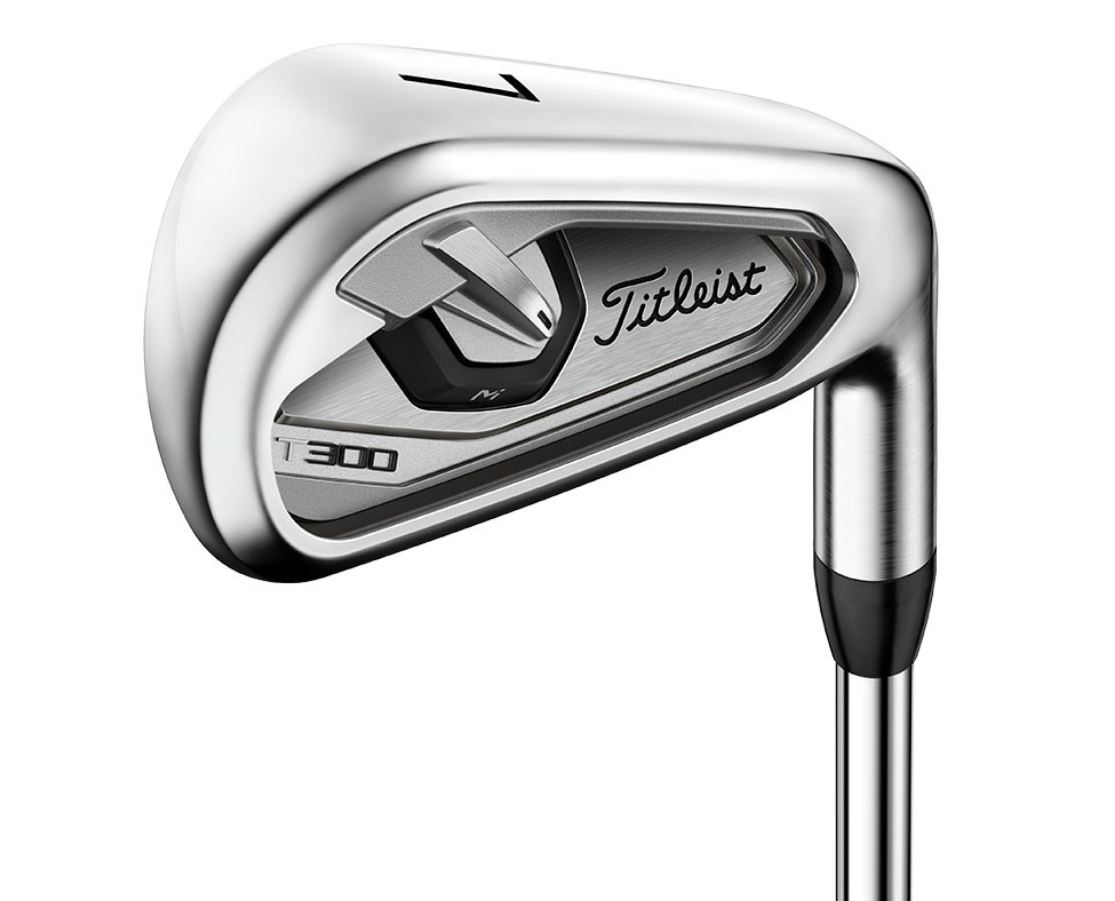
Key Features
- Longer blade length
- Enhanced MOI
- Contains tungsten weighting in the toe for ideal CG position
- Minimal offset for a players iron appearance
Pros
- Creates accelerated clubhead speed
- Forgiving
- Provides a consistently powerful launch
- Promotes straighter ball flight
- Designed to deliver consistent distance
Cons
- Straighter ball flight may not appeal to superior golfers looking to shape their shots.
Overall Score: 95/100
Check Out More Reviews:
Srixon ZX4
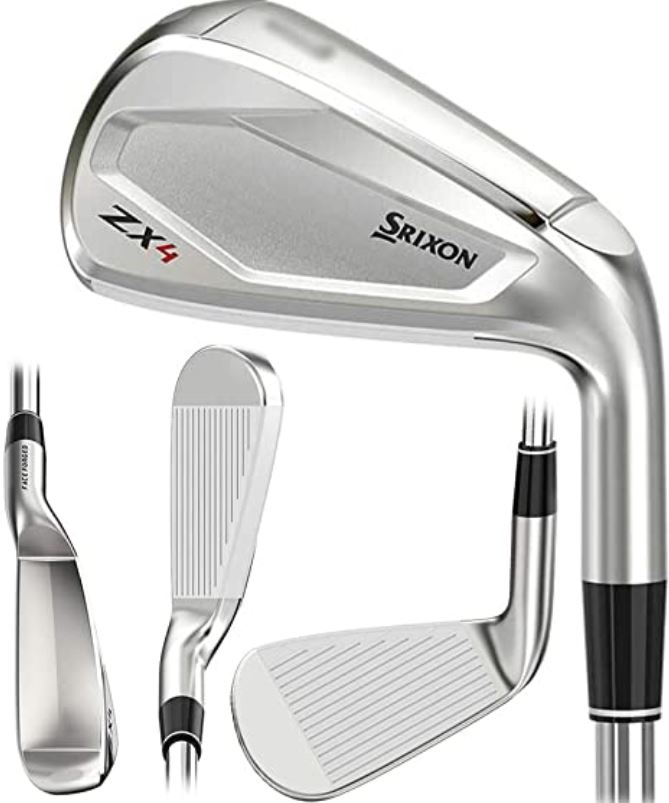
Key Features
- Compact, hollow head design
- Wide sole
- Most offset in the ZX range
- Long blade
Pros
- Forgiving set
- Promotes straighter ball flight
- Designed to deliver additional distance
- Slick appearance at address
- Soft feel
Cons
- The increased offset reduces shot shaping ability
- Moderately expensive for game improvement irons
- The set does not include a 3-iron, as is the norm with other ZX irons
Overall Score: 93/100
Check Out More Reviews:
Callaway Apex DCB
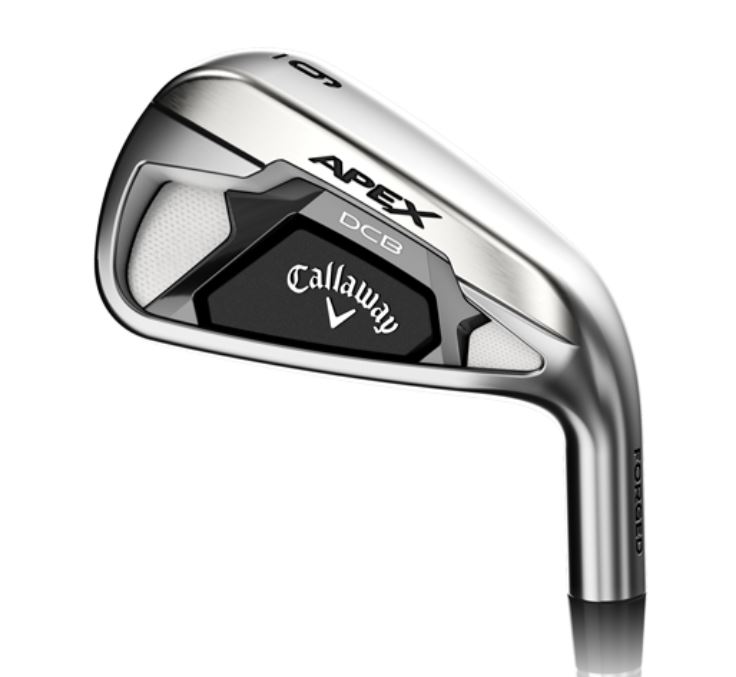
Key Features
- A moderate offset to promote a straighter flight
- Enhanced head shape
- Wide Sole
- First Apex irons designed with A.I
- Tungsten energy core inserted to precisely position the CG
- Patented urethane microspheres combine with the club’s forged body, to deliver an exceptional feel.
Pros
- Forgiving
- Promotes a powerful higher launch
- Designed to generate accelerated ball speeds
- Superb turf interaction
- Deliver exceptional distance
- Provides a straighter ball flight
Cons
- The wide sole may not appeal to lower handicappers and traditionalists
- A straighter ball flight reduces your ability to shape shots with these irons
- Moderately expensive
Overall Score: 93/100
Check Out More Reviews:
Our Favorite Forged Irons – Top 3
TaylorMade P7MB
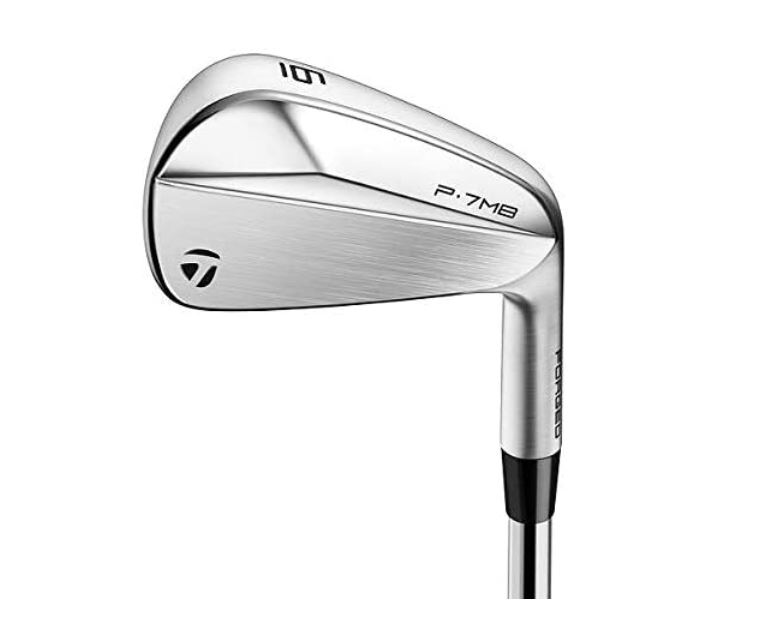
Key Features
- Buttery soft feel
- Thin topline
- Slim sole
- Forged using 1025 carbon steel
- Designed with feedback from Tour Pros
- Precise CG placement
Pros
- Soft feel on strikes out of the sweet spot
- Attractive appearance
- Incredible turf interaction
- Excellent shot shaping ability
Cons
- Not suited to mid and high handicap golfers
- Unforgiving
Overall Score: 94/100
Check Out More Reviews:
Mizuno JPX921 Tour
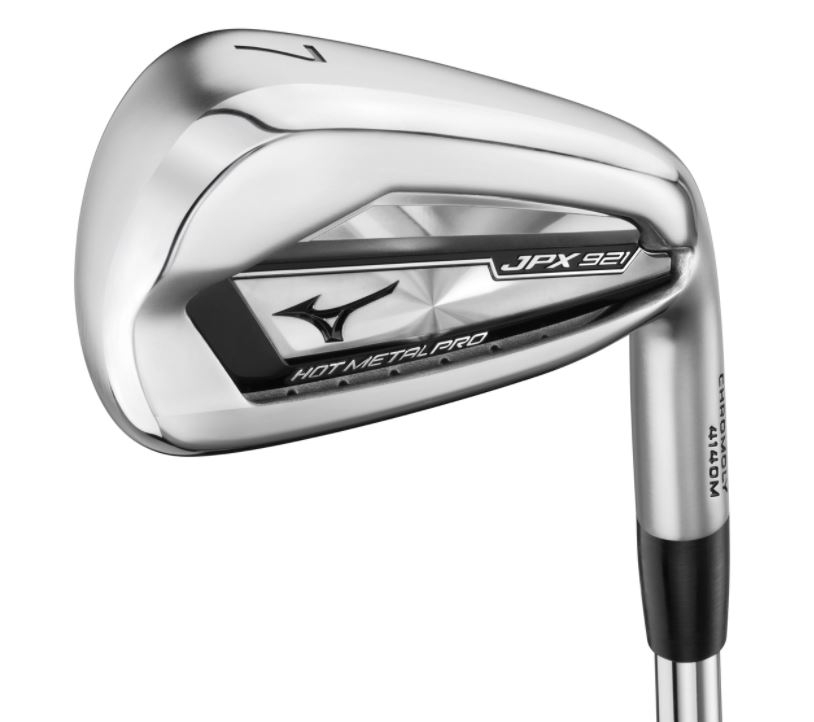
Key Features
- Forged from 1025E Carbon Steel
- Provides optimal CG for a longer straighter ball flight
- Mid to short irons contain a narrow sole for increased turf interaction
- Anti-glare pearl brush finish
Pros
- Soft feel on strikes out of the middle
- Optimized CG in the longer irons for higher, straighter shots
- Excellent turf interaction to navigate challenging lies
- Anti-glare brush finish does not blind you during your shot
Cons
- Minimal forgiveness
- Not suitable for mid to high handicap golfers
Overall Score: 93/100
Check Out More Reviews:
Honma TR20 B irons
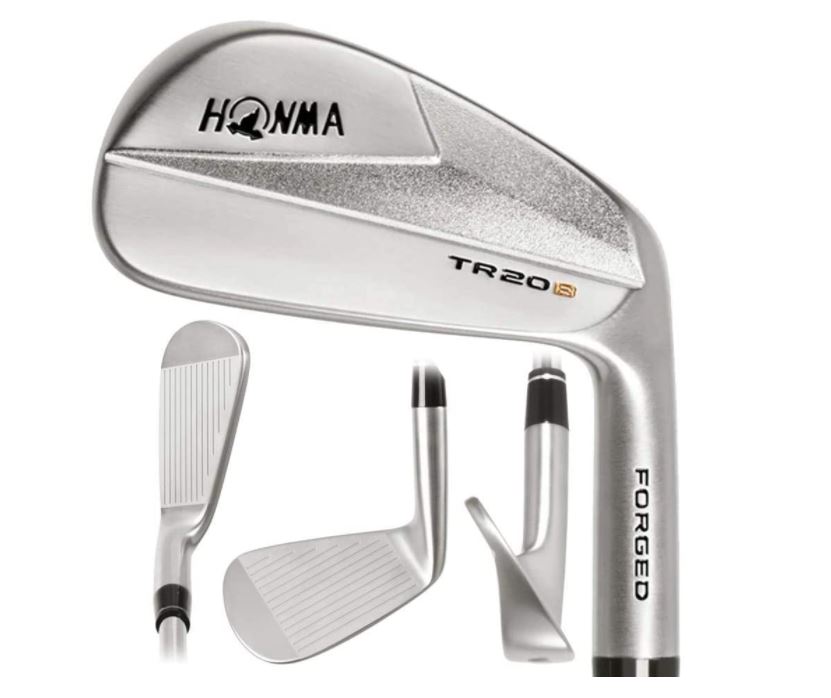
Key Features
- Pyramid muscle back shape
- Progressive blade length through the bag
- Crafted with progressive bounce spec
- Forged blade
Pros
- The irons have a traditional players iron appearance
- Enhanced turf interaction capabilities for a better connection
- These irons can be blended with other Honma irons with ease
- Easy for superior players to work their shots
Cons
- Moderately expensive
- Limited forgiveness
- Not recommended for mid to high handicappers.
Overall Score: 92/100
Check Out More Reviews:
Conclusion: Game-Improvement Irons Vs Forged Irons
In conclusion to our research on game improvement irons vs forged irons, it is clear that game improvement irons are best suited to mid and high handicap golfers.
Those of you who are looking for forgiveness and consistent distance will benefit the most from game improvement irons. It is safe to say that all of us could use some forgiveness, and if it is available to you, take advantage of it.
It is not advisable to think of using forged irons until you are striking the ball consistently. If you are unable to generate sufficient clubhead speed on your downswing, or you mishit these irons, there will be no forgiveness. Therefore, if you are not a low handicapper or a Pro, stick to the cavity backs.
If you are scouting for some new game improvement irons, you may want to test the Callaway Apex DCB irons.

